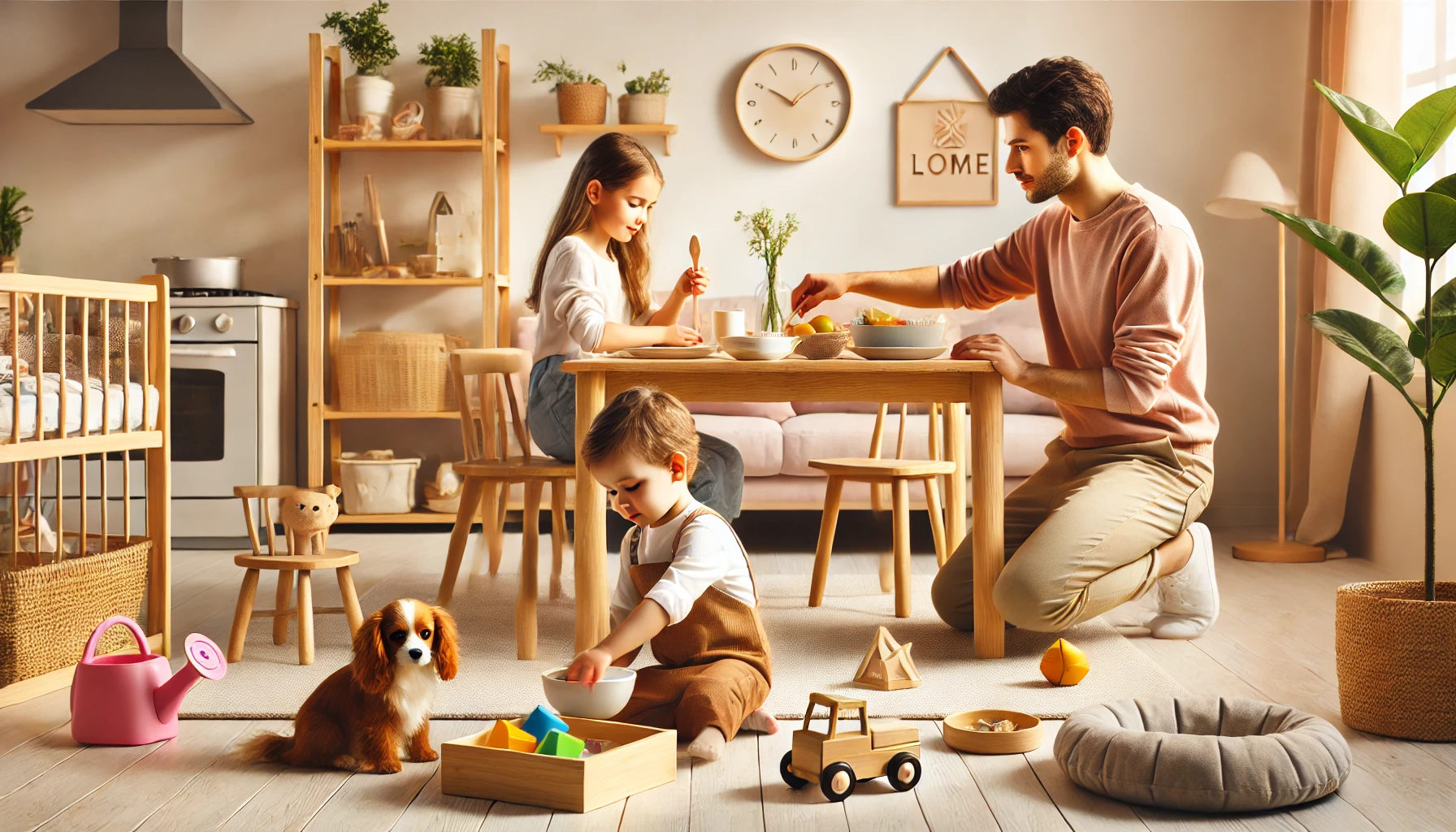How to Teach Young Children About Responsibility at Home
Teaching responsibility to young children helps them develop independence, accountability, and good decision-making skills. When children learn to take responsibility for their actions and tasks, they build confidence and understand the importance of contributing to their family and community. In this article, we’ll explore practical ways to teach responsibility at home.
Why Teaching Responsibility is Important
- Encourages independence – Helps children learn to manage tasks on their own.
- Builds accountability – Teaches kids that actions have consequences.
- Develops problem-solving skills – Helps children think through decisions and solutions.
- Fosters teamwork – Encourages children to contribute to family responsibilities.
- Prepares for future success – Instills discipline and organization for school and life.
1. Give Age-Appropriate Chores
Assigning simple tasks helps children learn the importance of responsibility.
Activity Idea:
- Toddlers (2-3 years old): Put toys away, throw trash in the bin, wipe small spills.
- Preschoolers (4-5 years old): Set the table, feed pets, water plants.
- Older children (6+ years old): Make their bed, fold laundry, help with meal prep.
What Kids Learn:
- The value of contributing to the household
- How to complete tasks independently
- The importance of teamwork
2. Establish Daily Routines
Consistent routines help children understand expectations and build good habits.
Activity Idea:
- Create a morning routine (get dressed, brush teeth, eat breakfast).
- Use a visual schedule with pictures or checklists.
- Set up a bedtime routine that includes cleaning up and preparing for the next day.
What Kids Learn:
- Self-discipline
- Time management
- The importance of structure
3. Encourage Decision-Making
Giving children choices helps them feel in control and responsible for their actions.
Activity Idea:
- Let them choose between two outfits or snacks.
- Ask, “What should we do first—clean up or read a book?”
- Guide them in solving small problems: “What can we do if we can’t find your toy?”
What Kids Learn:
- Confidence in making choices
- Problem-solving skills
- Independence in daily tasks
4. Teach the Concept of Consequences
Helping children understand cause and effect teaches accountability.
Activity Idea:
- If they leave toys out, explain why they might get lost or broken.
- If they spill something, encourage them to clean it up themselves.
- Reinforce positive consequences: “Because you helped set the table, dinner was ready faster!”
What Kids Learn:
- The impact of actions on others
- How to fix mistakes
- Accountability for choices
5. Encourage Taking Care of Personal Belongings
Children should learn to be responsible for their own items.
Activity Idea:
- Teach them to put shoes away after taking them off.
- Encourage packing their own backpack for school or outings.
- Show how to take care of books and toys by putting them back after use.
What Kids Learn:
- Organizational skills
- Respect for their belongings
- Self-sufficiency
6. Reinforce Responsibility Through Role-Playing
Pretend play helps children understand real-life responsibilities.
Activity Idea:
- Play “house” where kids take turns being the parent and taking care of tasks.
- Set up a “grocery store” where they manage shopping and paying for items.
- Act out scenarios like forgetting to clean up and discussing the consequences.
What Kids Learn:
- The role of responsibility in daily life
- Problem-solving through play
- How to handle different situations
7. Praise Responsible Behavior
Positive reinforcement encourages children to continue acting responsibly.
Activity Idea:
- Say, “I’m proud of how you put your toys away without being asked!”
- Use a responsibility chart with stickers for completed tasks.
- Encourage self-reflection by asking, “How did it feel to help out?”
What Kids Learn:
- The value of hard work
- Motivation to continue good habits
- Pride in their accomplishments
8. Be a Role Model for Responsibility
Children learn responsibility by observing how adults handle their own tasks.
Activity Idea:
- Show how you manage responsibilities: “I’m making a list so I don’t forget things.”
- Admit mistakes and fix them: “I forgot to water the plants, so I’ll do it now.”
- Let them help with your daily tasks, like folding laundry or cooking.
What Kids Learn:
- Leading by example
- That everyone has responsibilities
- How to manage tasks efficiently
Final Thoughts
Teaching responsibility at home prepares children for independence and success. By giving age-appropriate chores, establishing routines, and reinforcing positive behavior, parents can help children develop accountability, problem-solving skills, and a strong sense of responsibility.
